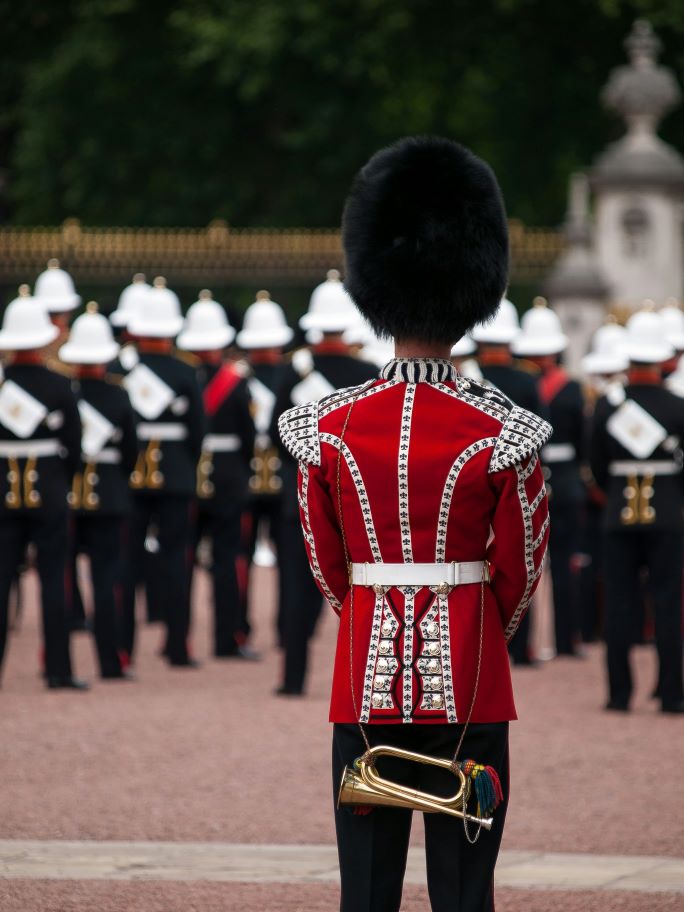Liberty Matters
Royalty, Health and the Environment
 The essays by Elena Woodacre, Helen Dale, Stephen Davies, and myself all discuss the role of monarchical government, as well as individual members of royal families in modern constitutional monarchies, in supporting long term concerns, balancing the short-term issues that are often the focus of individual election cycles. Davies states that monarchy is “a corrective to a fixation on the short term and immediate and the ignoring of the longer term and permanent” while Dale discusses how the common law system evolved with the development of constitutional monarchy. Woodacre observes that a monarchy “must continue to evolve in line with changes in society” in order to survive. My own essay discusses the evolution from the British Empire to a Commonwealth of equal nations. The philanthropic and advocacy work of individual members of reigning houses in modern constitutional monarchies reflects this historic focus on considering long term political, societal, environmental, and cultural trends over comparatively short-term concerns.
The essays by Elena Woodacre, Helen Dale, Stephen Davies, and myself all discuss the role of monarchical government, as well as individual members of royal families in modern constitutional monarchies, in supporting long term concerns, balancing the short-term issues that are often the focus of individual election cycles. Davies states that monarchy is “a corrective to a fixation on the short term and immediate and the ignoring of the longer term and permanent” while Dale discusses how the common law system evolved with the development of constitutional monarchy. Woodacre observes that a monarchy “must continue to evolve in line with changes in society” in order to survive. My own essay discusses the evolution from the British Empire to a Commonwealth of equal nations. The philanthropic and advocacy work of individual members of reigning houses in modern constitutional monarchies reflects this historic focus on considering long term political, societal, environmental, and cultural trends over comparatively short-term concerns.The members of reigning families in modern constitutional monarchies often employ their considerable public profiles to raise awareness of issues that will take generations to resolve. Since the eighteenth century, royalty have raised funds for hospitals as well as awareness of physical and mental health conditions, contributing to the development of modern health care systems. For example, Queen Victoria’s jubilees were occasions for the founding of new nursing orders. The Queen Victoria’s Jubilee Institute for Nurses was chartered in the United Kingdom in 1889, two years after Queen Victoria’s Golden Jubilee and continues to the present day as the Queen’s Nursing Institute, a charity whose mission is to improve the nursing care of people in their homes in England, Wales, and Northern Ireland. In Canada, the Diamond Jubilee of Queen Victoria in 1897 was commemorated with the founding of the Victorian Order of Nurses, one of the first organizations in Canada to provide prenatal education, school health services and co-ordinated home care programs. Like the Queen’s Nursing Institute, the VON continues to provide home care in the 21st century. Royal support of these initiatives helped to counter the reservations of members of the medical establishment concerning new ideas and structures for providing health care. Queen Victoria’s third daughter Princess Helena (Princess Christian) was a friend of Florence Nightingale and advocated for nursing to become a recognized and respected profession. In times of war, royal women often worked as nurses or hospital volunteers themselves, inspiring others to follow their example. In recent decades, the late Diana, Princess of Wales famously worked to destigmatize HIV/AIDS patients and both her sons, Prince William, Prince of Wales and Prince Harry, Duke of Sussex have advocated for greater support for people experiencing mental illness, through such organizations as Heads Together in the United Kingdom.
In the 21st century, the most notable example of royal advocacy for sustained progress addressing long term issues is the involvement of members of royal houses in initiatives supporting environmental conservation and sustainable development. Multiple generations of royal families have built on past initiatives to support the preservation of the natural world and brought together leading experts in environmental science to address this long-term issue that impacts societies around the globe. The late Prince Philip, Duke of Edinburgh was the patron of the World Wildlife Fund while the current King Charles III has advocated for organic farming and sustainable development over the course of his adult life. Prince William, the Prince of Wales, recently visited Boston for the Earthshot Prize Awards, which is awarded to five winners each year for their contributions to environmentalism. The environment is also an important focus of advocacy and philanthropy for members of other reigning houses in constitutional monarchies around the world. Several members of the Japanese Imperial family have published articles in scientific journals concerning fish and bird species while King Willem-Alexander of the Netherlands served as Chairperson of the United Nations Secretary General's Advisory Board on Water and Sanitation prior to succeeding to the throne in 2013. Crown Prince Frederick of Denmark has participated in expeditions, conferences, and events intended to raise awareness of climate change.
The essays in this collection all highlight the role of constitutional monarchies in addressing issues that take generations to solve, far beyond the scope of a single election cycle. The philanthropy and advocacy of individual members of royal houses in the fields of health care and environmentalism demonstrate the role of modern royalty in raising awareness of complex issues that affect the quality of life of people around the world.
Copyright and Fair Use Statement
“Liberty Matters” is the copyright of Liberty Fund, Inc. This material is put on line to further the educational goals of Liberty Fund, Inc. These essays and responses may be quoted and otherwise used under “fair use” provisions for educational and academic purposes. To reprint these essays in course booklets requires the prior permission of Liberty Fund, Inc. Please contact oll@libertyfund.org if you have any questions.